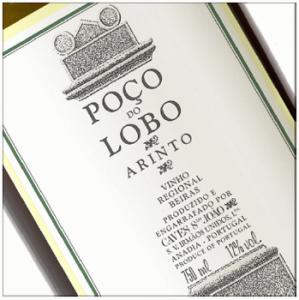| « Previous | News | Next » |
December 23, 2014
Quinta do Poço do Lobo, Arinto 1995: The Fountain of Youth
Caves Sãn João is a major figure in Portuguese wine, proudly laying claim to being one of the oldest wine trading companies in the country. They are also known for their extraordinary library of wines, housed in labyrinthine underground tunnels stacked with bottles—over a million—dating from 1959 to 2000. But it started small: in 1920, three brothers—José, Manuel, and Albano Costa—began to trade fine wine from the Douro and Bairrada regions. In the 40s, they expanded into winemaking, and and began producing sparkling wine in the traditional method with indigenous grapes. From this experiment came two of the most iconic Portuguese labels: Frei João from Bairrada and Porta Dos Cavaleiros from the Dão region. In 1972, they acquired 35 ha of vineyards known as Quinta do Poco do Lobo, and planted them with the indigenous Arinto (white) and Baga (red) grapes.
 Their 1995 Quinta do Poço do Lobo comes from this original planting, and is 100 percent Arinto, one of Portugal’s oldest indigenous varietals. The grape is known to produce lively, mineral whites throughout Portugal, but it thrives in the coastal regions. At Poço do Lobo, only 15 kilometers from the sea, it has found its ideal terroir, and makes excellent, long-lived, complex wines. Arinto is often blended with warm-climate Portuguese wines, because its naturally exuberant acidity brings longevity to wines—when bottled on its own, it’s a powerhouse. In Bairrada, the grape’s natural acidity is enhanced by the cool Atlantic climate and winds.
Their 1995 Quinta do Poço do Lobo comes from this original planting, and is 100 percent Arinto, one of Portugal’s oldest indigenous varietals. The grape is known to produce lively, mineral whites throughout Portugal, but it thrives in the coastal regions. At Poço do Lobo, only 15 kilometers from the sea, it has found its ideal terroir, and makes excellent, long-lived, complex wines. Arinto is often blended with warm-climate Portuguese wines, because its naturally exuberant acidity brings longevity to wines—when bottled on its own, it’s a powerhouse. In Bairrada, the grape’s natural acidity is enhanced by the cool Atlantic climate and winds.
The 1995 has exotic notes of dried fruits and mushrooms, and the characteristic acidity that Arinto is known for has kept this wine remarkably fresh and vivacious. It is a fantastic cheese accompaniment, but would be lovely with fish, pork, or roasted chicken, as well. This bottle accomplishes an illusive trifecta: solid winemaking, good storage practices, and excellent raw materials. The result is a lively, eternally youthful wine (or seemingly so) with deep roots in Portuguese tradition.
